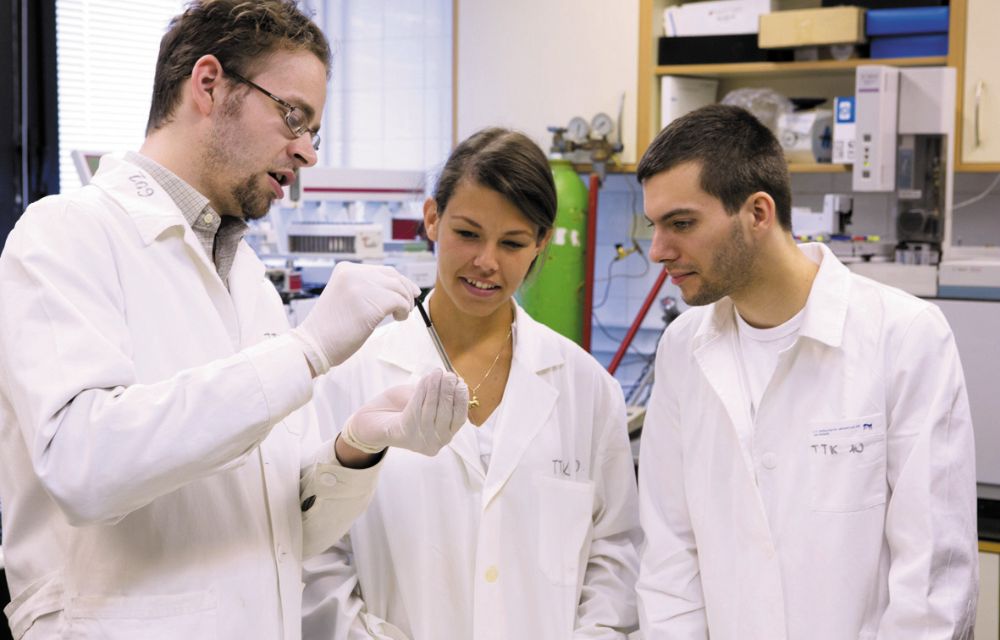Located in the centre of Europe, speaking one of the hardest languages in the world
Hungary is a country steeped in history and culture. There's always something to explore from the majestic Castle District in Budapest to the charming streets of renowned university towns like Debrecen, Szeged or Pécs. Hungary's cultural treasures will captivate you whether you’re an art enthusiast or a history fan. The vibrant festivals, traditional folk music, and dance offer a glimpse into the country’s soul, making your stay here an enriching experience.

Hungarian, or Magyar, is one of the most unique languages in the world. While it may initially seem challenging, learning Hungarian can be a rewarding experience. It helps you integrate better into the local culture and enhances your cognitive abilities. Plus, many universities offer programs in English, so you can study in Hungary without needing to be fluent in Hungarian.

Let's get some inspiration from Liu Beier, an Alumni Network Hungary volunteer & Stipendium Hungaricum student, who studied the language during his studies in Hungary!
My advice is first and foremost, to love the language. It is of paramount importance that you enjoy reading, hearing, writing, and speaking the language to keep motivated emotionally and psychologically. So, don’t worry about not being silent and slow in composing sentences. Listen carefully and read with patience to get fully familiar with Hungarian first. Thirdly, learning this agglutinative Hungarian is like a jigsaw-solving game. Get your hands dirty with some experiments on combining different morphological components together. This always gives you a quick kick-start in remembering the structure. Last but not least, find real-life partners to communicate in Hungarian. Local communities are your best classrooms. You can start with online chats with buddies from Tandem."
Where tradition meets innovation
The research and development activities of Hungarian higher education institutions are fundamental to the country’s innovation rate. In 2024, the annual Global Innovation Index ranks Hungary 36th in 2024 based on the level of success and innovation of 131 countries worldwide. Both rankings show that Hungary has a high innovative capacity on a global scale.

Hungarian universities have several innovation labs, and research groups and are highly effective in their RDI (Research, Development and Innovation) activities. If you are interested in conducting innovative research and making discoveries in Hungary, you have several options to get you started. All universities in the country offer research opportunities in all fields of study, which you can enquire about at your institution’s department once enrolled. Around 130 research groups operate at universities, which means you have a good chance of joining one of them.
Botar Mariko studied MA Health Policy at the Eötvös Loránd University (ELTE). The university was founded in 1635 and is one of the most prestigious public higher education institutions in the country. ELTE is affiliated with 5 Nobel Prize winners, as well as winners of the Wolf Prize, Fulkerson Prize and Abel Prize, the latest of which was Abel Prize winner Endre Szemerédi in 2012. ELTE has 30 research groups in collaboration with the Hungarian Academy of Sciences. During her studies, Botar conducted research in the field of breast cancer screening improvement:
 @Photo: ELTE.hu
@Photo: ELTE.hu
Stipendium Hungaricum Scholarship Programme Graduate, Mohammed Abduelhamed Abboh Adam did a master degree in Agricultural Environmental Management Engineering at the University of Debrecen (UD) between 2018 and 2020. UD is one of the largest institutions of higher education in Hungary that places strong emphasis on involving students in research and development activities.
 @Photo: unideb.hu
@Photo: unideb.hu
Varun Vashist earned a Master’s Degree in MS Mechanical Engineering at the Hungarian University of Agriculture and Life Science (former name: Szent István University). He took part in more research projects during his studies:
Hungarian universities have several collaborations with governmental and foundational institutes covering all fields of science that can help you build your research career during and after your studies. The two most prominent institutions are the Hungarian Academy of Science, the oldest and greatest institution of Hungarian science and a key player in Hungarian RDI, and the National Research, Development and Innovation (NRDI) Office which is the national strategic and funding agency for scientific research, development and innovation, the primary source of advice on RDI policy for the Hungarian government.
Study in a safe and international environment
Safety is a significant concern for international students, and Hungary excels in this area. As stated in the Global Peace Index 2024, Hungary ranks as the 14th safest country in the world. With its low crime rates and friendly communities, Hungary provides a secure environment where students can focus on their studies and enjoy their time abroad. The welcoming nature of the Hungarian people ensures that you’ll feel at home in no time.

